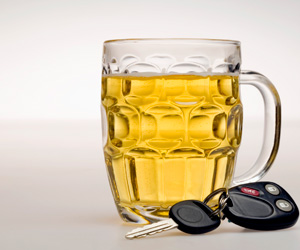 Jan. 25, 2013 – In prosecutions for subsequent drunk driving offenses, the state is not required to prove the elements of an underlying first offense to a jury beyond a reasonable doubt.
Jan. 25, 2013 – In prosecutions for subsequent drunk driving offenses, the state is not required to prove the elements of an underlying first offense to a jury beyond a reasonable doubt.
The District III Wisconsin Court of Appeals made that clarification in State v. Verhagen, 2011AP2033 (Jan. 23, 2013), consolidated with four other cases invoking the same issue.
One defendant was convicted for driving while intoxicated (OWI), third offense. Three others were charged and convicted of a fifth offense OWI. In pretrial motions, all of them sought orders challenging, as applied to them, Wis. Stat. section 343.307(1).
That provision describes the convictions to be counted in determining penalties for subsequent OWI offenses, and includes first-offense OWIs, which are civil forfeiture actions.
The defendants argued that first-offense OWIs should not be counted because civil violations don’t require the state to meet a criminal burden of proof before a 12-person jury. In subsequent OWI cases, they said prosecutors must prove the underlying first-offense.
Specifically, the defendants argued that enhanced penalties may not be based on “prior convictions” that were not obtained in criminal proceedings, citing New Jersey v. Apprendi, 530 U.S. 466 (2000). In that case, the U.S. Supreme Court struck down a state hate crime law.
“We believe the appellants read too much into Apprendi,” wrote Judge Mark Mangerson. “Notably, the Supreme Court did not declare unconstitutional enhanced penalties based on prior convictions obtained in the absence of the jury guarantee and criminal burden of proof.”
The panel noted the federal courts differ on what constitutes a “prior conviction” under Apprendi, but Wisconsin law provides adequate guidance. “Wisconsin courts have repeatedly upheld the constitutionality of Wisconsin’s OWI penalty structure,” Mangerson wrote.
In addition, forcing juries to decide the underlying facts of previous OWIs may lead to another problem, the panel explained, unsettling much of Wisconsin law.
“By obligating the State to prove both the underlying facts of the earlier and subsequent offenses in the same proceeding, a defendant risks being convicted of the latter crime simply because the jury views him as a bad person,” Judge Mangerson wrote.
